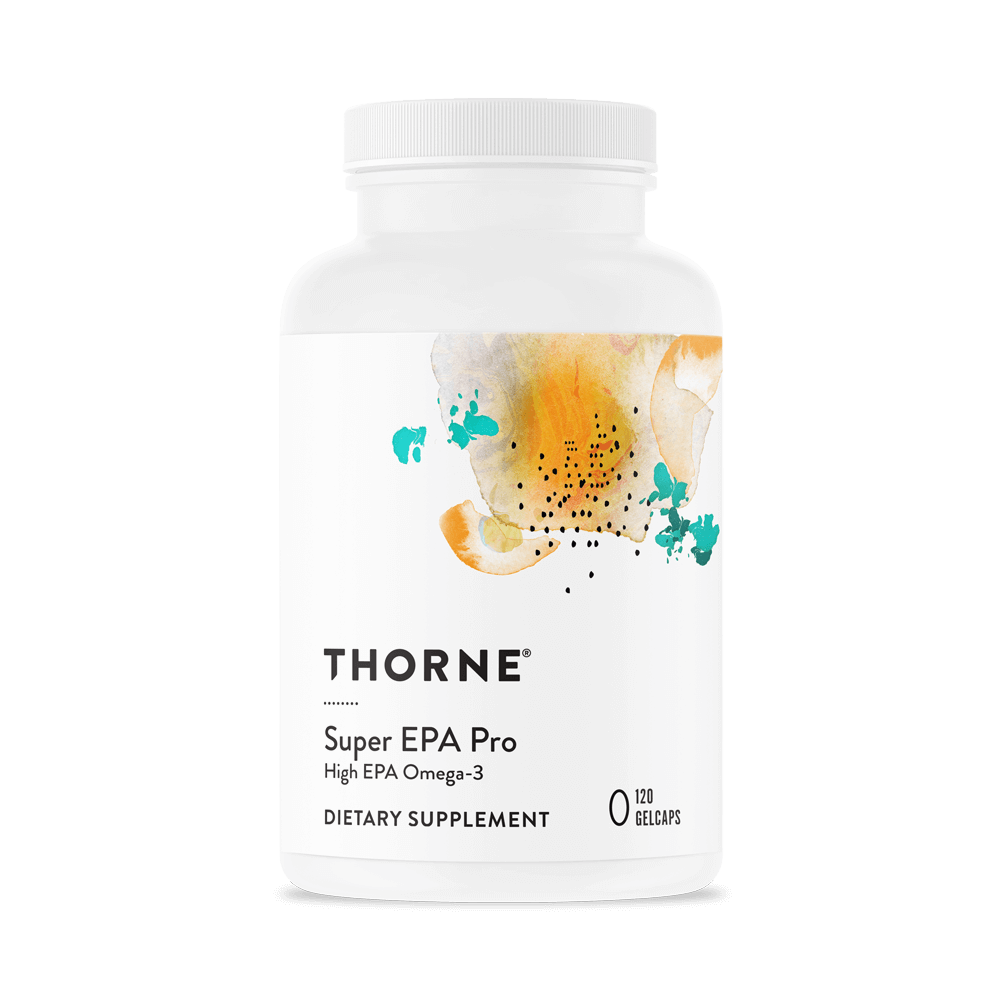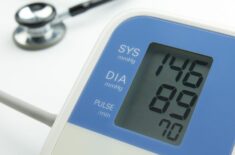Overview
Preterm birth is a leading cause of disability and death in the first five years of life. Fish and fish oils contain omega-3 fatty acids and have been linked to longer pregnancies. (1)
Omega-3 fatty acids are also important to support fetal development. Therefore, pregnant women are recommended to take adequate amounts of these fatty acids.
Omega-3s are essential fats with many other health benefits. However, your body cannot produce these fats on its own, so you have to obtain them from other sources.
Fish and seafood are a great source of omega-3. However, in 2004, the FDA (Food and Drug Administration) set a recommended limit of only two servings of fish intake in pregnant women, which means that you would need to get this nutrient from other food sources or fish oil supplements (2).
Read on and find out what you need to know as a pregnant woman about omega-3s in fish oil.
Why Is Omega-3 Fish Oil Important During Pregnancy?
Omega-3 fatty acids in fish oil are critical building blocks for developing your baby’s retina and brain development.
These are essential nutrients for your baby’s birth weight, the length of your gestation, and in helping prevent postpartum depression (2).
Your pregnancy may be putting you at risk of being omega-3-deficient because your growing baby demands it as well.
This is why getting the fatty acids from the right sources and taking prenatal supplementationof these fatty acids are important.
Other health benefits of taking omega-3 fish oils may benefit not just you and your baby but a whole generation as well.
In a randomized controlled trial, fatty acid supplementation appears to reduce risks of cardiovascular and heart diseases. (3) They keep plaque from forming in your arteries by keeping its lining smooth and damage-free.
Scientists have discovered that omega-3 fatty acids DHA and EPA also inhibit the production of prostaglandin, a hormone that triggers inflammation in your body. So it pretty much works like aspirin, stopping pain and inflammation. (4) In pregnancy, prostaglandin may stimulate labor and cause preterm birth.
Some studies repeatedly prove that women who take omega-3 have milder menstrual pain and are even more effective than ibuprofen. (5)
Your pregnancy may have caused you to stop using some beauty products because of pregnancy risks. You’ll be pleased to know that fatty acids like DHA are found to be a component of your cell membranes’ health. Healthy cell membranes mean healthy skin, hair, and nails.
For these reasons, Americans spend over $1 billion a year on fish oils. (6) This is also why food companies also add this omega-3 in food items such as milk, yogurt, juice, cereal, and even cookies and chocolates.
Omega-3 contains three essential fatty acids that your body needs but cannot produce. These three fatty acids are:
- DHA (docosahexaenoic acid)
DHA is the most important omega-3 fatty acid that you need during pregnancy.
Rapid neurodevelopment and retinal development happen in the second half through the third trimester of your pregnancy. At this point, adequate intake of DHA (docosahexaenoic acid) becomes more important. This fatty acid may also be crucial up to the 18 months of your baby’s life (7).
If you’re planning to breastfeed, you must make sure that your body has enough DHA, as your intake directly affects the amount in your milk. (8)
DHA may also help improve the length of your gestation and reduce the risk of premature birth. (9)
Many infants in the last 50 years lack DHA in their formulas. This deficiency in DHA is linked to fetal alcohol syndrome, cystic fibrosis, attention deficit hyperactivity disorder, and cognitive decline (10).
In adults, DHA is required to maintain normal brain function and cognitive development.
- EPA (eicosapentaenoic acid)
You have to make sure that EPA is included together with DHA in your supplement because it’s EPA that improves the transport of DHA to your placenta. (11)
EPA, on its own, has been approved by the FDA (Food and Drug Administration) as a treatment for hypertriglyceridemia. This condition increases the risk of coronary artery disease.
This fatty acid can also help in reducing:
- Cellular inflammation
- Neuro-inflammation (associated with ADHD, depression, and trauma)
- Symptoms of menopause in women.
It’s also useful for your child’s mental and cognitive development.
- ALA (alpha-linolenic acid)
This fatty acid needs to be converted into EPA and DHA before your body can use it. However, research says only less than 1% of ALA is converted into EPA and DHA that your body can use.
How Should I Choose My Fish Oil Supplement?
APA (American Pregnancy Association) has the following guidelines for quality fish oils:
- The manufacturer should provide third-party lab results to show the purity of their fish oil.
- A good quality fish oil supplement should not smell fishy or rancid.
- Your supplement should not contain PCBs (polychlorinated biphenyls), toxic chemicals that can seriously affect fetal and postnatal growth.
- High-quality fish oils should not taste fishy. Look out for strong or artificial flavors that may have been added to hide rancidity. (38)
Always choose high-quality fish oil supplements.
Some of these are the following:
Nordic Naturals Prenatal DHA – (90 soft gels)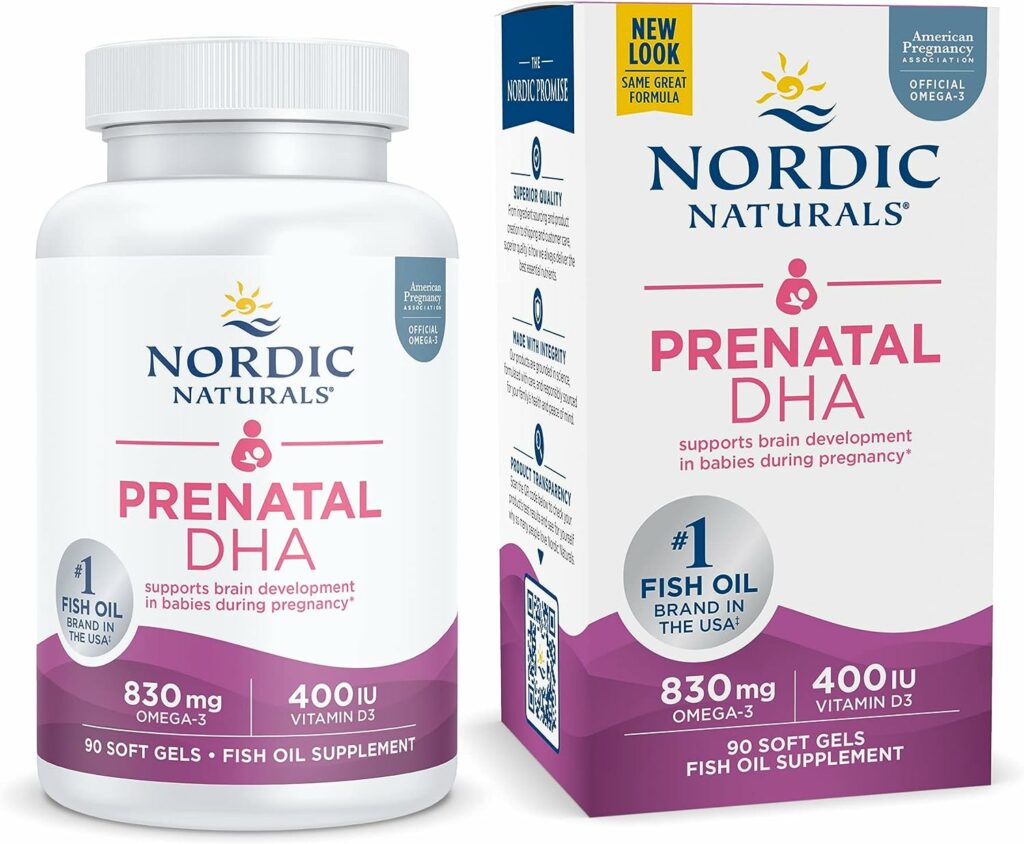
Nordic Naturals Arctic Cod Liver Oil – (90 soft gels)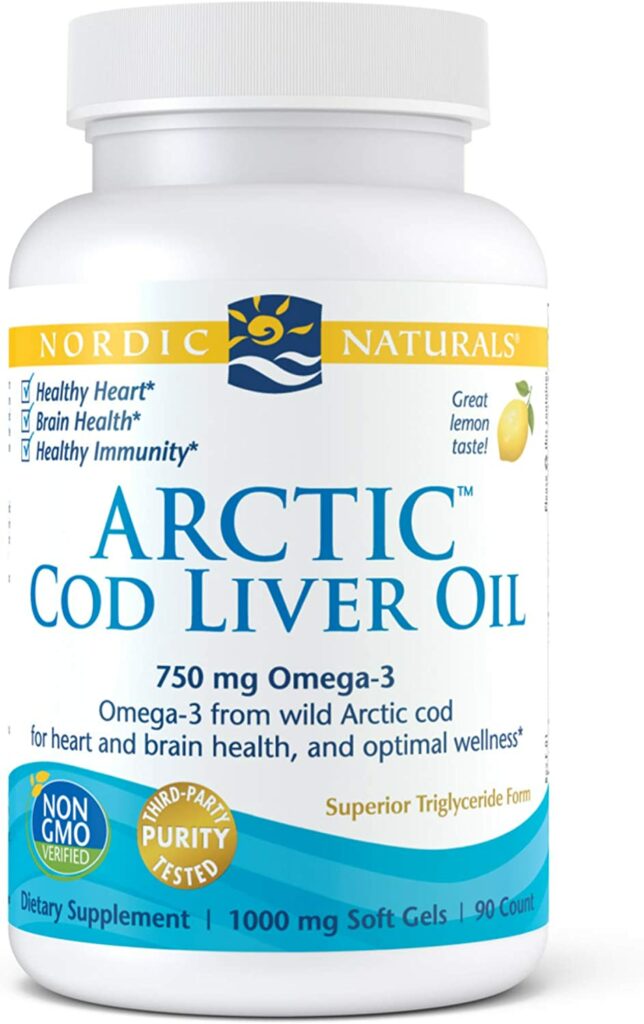
Nordic Naturals Ultimate Omega 2X w/ Vitamin D3 – (60 soft gels)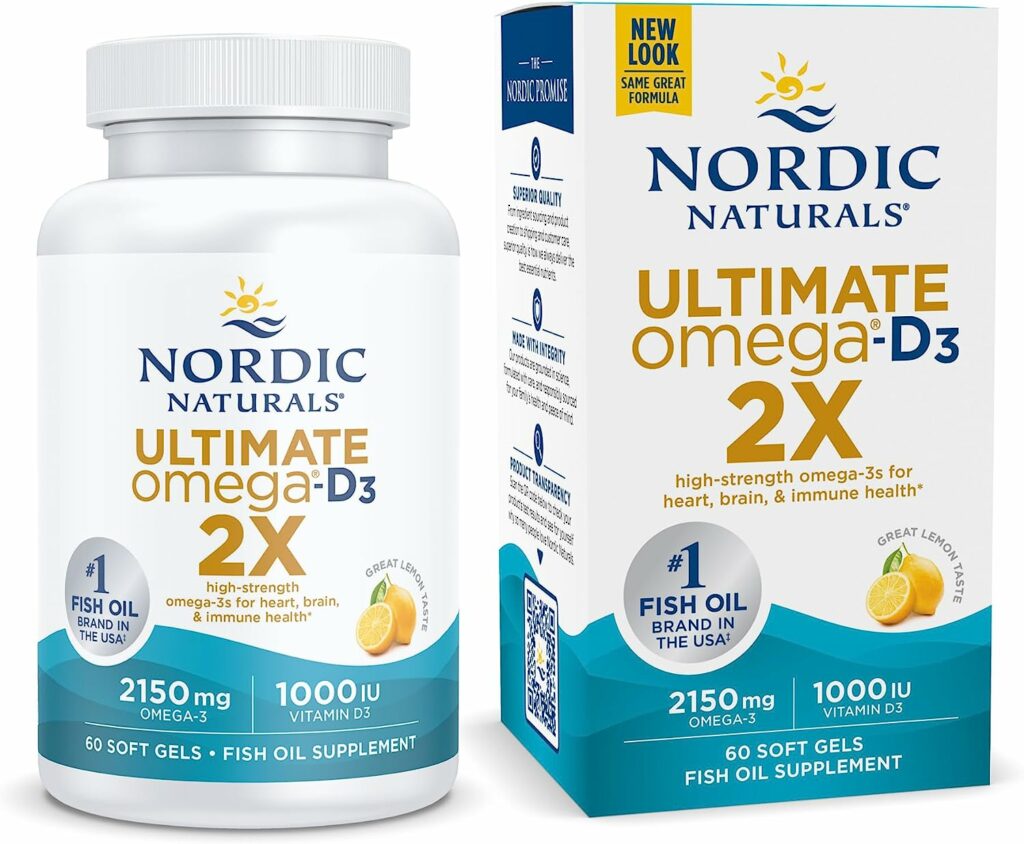
Carlson EcoSmart Omega-3 Fish Oil – (90 soft gels)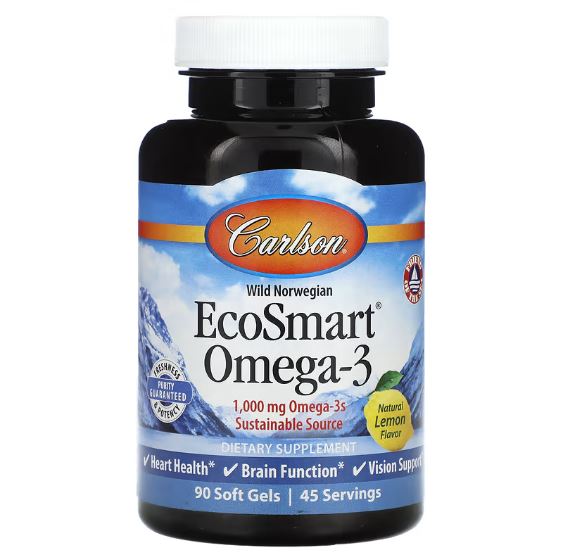
Carlson Labs The Very Finest Fish Oil – (16.9 ml bottle)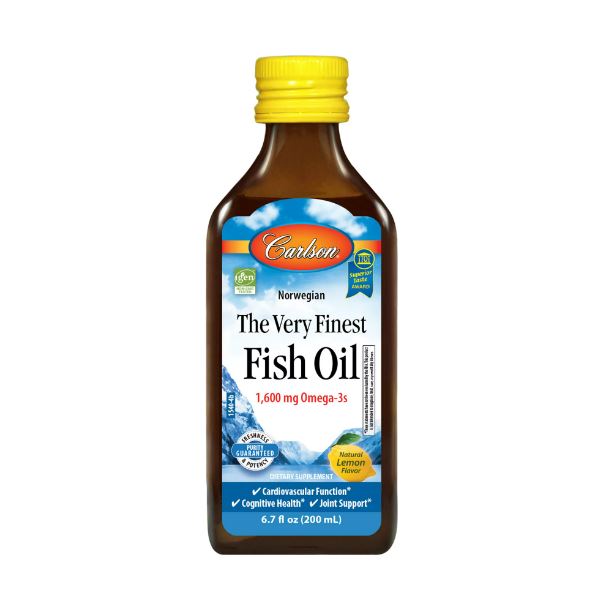




Thorne Super EPA Pro – (60 Capsules)
Benefits Of Omega-3 Supplementation During Pregnancy
So how does omega -3 in fish oil benefit you and your baby?
- Your baby’s brain development in utero is promoted.
Supplementation with omega-3 during pregnancy and lactation showed positive cognitive function to children at four years of age. (12)
- Omega 3s may develop your child’s visual acuity.
Research has confirmed that maternal DHA and EPA supplementation may improve the visual development of your baby. (13)
- Omega 3s may reduce your child’s risk of developing asthma or allergies.
A 2011 systematic review of placebo-controlled trials found that taking omega-3 fatty acids during pregnancy may reduce risks of asthma and allergies in infants. (14)
- Omega-3s may prevent preterm birth.
(LCPUFA) long-chain polyunsaturated fatty acids in omega-3 show that it may help reduce your risk of having a premature birth.
Increasing the daily intake of long-chain omega-3s lowers the risk of having a premature baby:
- At less than 37 weeks by 11%
- At less than 33 weeks by 42% (15)
Preventing preterm birth is also a way to reduce the risk of long-term conditions such as: (16)
- Visual impairment
- Developmental delays
- Autism
- Learning difficulties
- Your baby may have a higher birth weight.
A 2013 study published in The American Journal of Clinical Nutrition observed the dietary habits of pregnant women. Infants of mothers who took fatty acid DHA during pregnancy weighed more at birth. (17)
- Your risk of developing preeclampsia is reduced.
Observational studies have shown that preeclampsia may be linked to omega-3 deficiency. (18)
Preeclampsia is a serious pregnancy complication with symptoms such as high blood pressure and damages to organ systems such as the liver and kidney.
- Your risk of depression is also reduced.
Deficiency in omega-3 may also be linked to a mother’s chance of having worse and earlier postpartum mood disorders with succeeding pregnancies. (19)
- High DHA levels in breastmilk are good for you and your baby.
A 2010 study discovered that mothers who took fish oil during lactation have kids who performed better on sustained attention tasks at five years of age. (20)
- Omega-3s may reduce symptoms of ADHD in children.
Studies show that kids with ADHD have low levels of omega-3 fatty acids in their blood. (21)
- Your child may have a reduced risk of developing autoimmune diseases in adulthood.
Some studies show that getting omega-3 in the first year of life may reduce your child’s risk of many autoimmune diseases like type 1 diabetes and multiple sclerosis. (22)
- Your and your child’s sleep might improve.
Sleep deprivation may put you and your child at risk of depression and other diseases. Supplementing with omega-3 may help increase the length and quality of your sleep. (23)
- Reduced your risk of breast cancer.
Although not all studies give the same results, taking omega-3 is linked to a reduced risk of breast cancer in women. (24)
Recommended Dosage: How Much Do You Need?
According to the NIH (National Institutes of Health), there are insufficient data to determine a recommended daily allowance of omega-3 for healthy adults or pregnancy. Different amounts are recommended for different health conditions. (25)
For healthy adults:
Combined DHA and EPA = minimun of 250-500 mg/ day (26)
ALA for men = 1.6 g /day
ALA for women = 1.1 g/ day
For pregnant and breastfeeding women:
DHA = add 200 mg to regular dose/ day (27)
For infants and children:
Combined DHA and EPA = 50 – 100 mg per day (28)
During pregnancy, the best advice is for you to eat up to two portions of oily fish per week or include vegetarian or vegan sources of omega-3 in your meals every day.
A study shows that fish oil or pills may not be a substitute for eating fish. The health benefits from fish may come from how the nutrients work together, not in isolation. For example, DHA and EPA from fish are better absorbed by the body than from pills. (29)
Best Food Sources Of Omega-3
There is a wide variety of food where you could obtain omega-3 fatty acids and meet your daily requirements. To get sufficient supply for you and your baby, taking omega-3 fatty acids is great before, during, and after pregnancy.
Eating fish or seafood is the best way to obtain omega-3 fatty acids. Pregnant or breastfeeding moms can safely eat 8-12 ounces of low-mercury fish per week. (30)
You have to watch out for mercury content, though, especially in fish. Mercury collects in streams and oceans naturally and because of pollution. They are converted to methylmercury which may be harmful to your baby.
According to the American Pregnancy Association, Safe Catch is the only brand that tests every single tuna for strict mercury limits. They do not recommend untested tuna because mercury levels vary in each tuna, regardless of size and catch location. (29)
Rebecca Fett, author of Brain Health from Birth, says:
“For decades, governments have been warning pregnant women that mercury in fish can harm their baby’s brain, but it now appears that these warnings may have caused more harm than good.
That is because many women simply stopped eating fish when pregnant, depriving their infants of all-important DHA.
Studies have now revealed that a lack of omega-3 fats is actually a much bigger threat to brain development than the low amounts of mercury found in most fish.” (16)
Here are the most pregnancy-safe fish options with high omega-3 content:
- Wild-caught salmon
- Wild-caught sardines
- Herring
here are other low-mercury fish and seafood choices with some omega-3 content, but not enough to meet your daily needs:
- Pollock
- Shrimp
- Scallops
- Crab
Pregnant women should steer clear of the following fish because of very high levels of mercury:
- Swordfish
- Bluefin tuna
- Shark
- Tilefish
- King mackerel
- Marlin
If you’re not a fan of fish or seafood, the following are also good sources of fatty acids:
- Seaweed (nori, chlorella, spirulina)
- Seeds (chia seeds, hemp seeds, flaxseeds)
- Vegetable oils (hemp oil, flaxseed oil, olive oil)
- Walnuts
- Beans (edamame, kidney beans)
- Leafy green vegetables (brussels sprouts, spinach, watercress, parsley, kale)
- Fortified foods (found in supermarkets or health stores like eggs, milk, tortillas, spreads)
Lily Nichols has insightful thoughts about obtaining the most important fatty acid DHA. She says:
“ You can eat all walnuts, flaxseeds, and chia seeds you want, but you still won’t get anywhere close to meeting your baby’s DHA needs, and you’ll likely become depleted yourself.
You must consume DHA directly to get enough.
For those who do not eat fish or seafood, pasture-raised eggs, an algae-based DHA supplement (the only plant source of DHA) would be necessary.” (31)
If you’re vegetarian, Rebecca Fett recommends Nordic Naturals Algae Omega. (16)
Deficiency
Some research indicates that DHA deficiency during pregnancy is linked to the risk of having a lower score in infant neurodevelopment in babies. Evidence of lasting effects to children is limited. (32)
The following symptoms may be signs that you need to consult your health care provider to check your omega-3 fatty acid levels. (32)
- Hair, skin, and nail problems
Omega-3 helps build cell membranes. When your levels of fatty acids are low, this may cause rashes and dandruff.
- Concentration and attention problems
Low levels of omega-3s may cause your memory and focus to decline.
- Allergies
Asthma, hives, or eczema may indicate low levels of omega-3 fatty acids.
- Heart problems
Omega-3s protect against heart diseases and help control levels of harmful cholesterol.
- Menstrual problems
Heavy periods with clotting may be relieved through intake of omega-3 fatty acids.
- Joint pain and leg cramps
The anti-inflammatory properties of omega-3s may prevent and relieve these symptoms.
- Difficulty sleeping
Although it may be tricky to pinpoint what causes your sleeping problems, omega-3 deficiency may be a possible cause.
Safety Considerations
Although it’s safe to take omega-3 supplements while you’re pregnant, you should check with your healthcare provider first before taking supplements that contain fish liver, like cod liver oil. They contain vitamin A and vitamin D, which, in high doses, can harm your baby, so make sure you’re not over-supplementing with these. (33)
Also, if you’re pregnant, don’t take fish oil supplements if you have bleeding issues and take anticoagulants (blood thinners).
Omega-3 fatty acids can be safely consumed at up to 5,000 mg daily. (34)
The American Pregnancy Association gave pointers in choosing fish oil supplements (35).
- Investigate the manufacturing process.
The quality standards for fish oil guarantee quality by setting maximum allowances for toxins. These quality standards include the Norwegian Medicinal Standard, the European Pharmacopoeia Standard, and the voluntary U.S. standard established by the Council for Responsible Nutrition’s 2006 monograph.
- Smell
Does your fish oil smell fishy? Research shows that fish oils would smell unpleasant when the oil has started to degrade and becomes rancid. On the other hand, high-quality fish oil doesn’t smell fishy.
- Taste
The freshest and highest quality fish oils should not taste fishy at all. Avoid those that have strong or artificial flavors added to them.
They also specifically recommended Nordic Natural Prenatal DHA.
Krill oil has also emerged as a great source of DHA and EPA. However, krill oil fatty acids are structurally different than fish oil. This may have an impact on how your body would use these fatty acids. (36)
Too much fish oil may also pose some risks like:
- Diarrhea
This is one of the most common effects of taking too much fish oil or omega-3s due to the high-fat content. (37)
- Acid reflux
Due to fish oil’s high-fat content, acid reflux is also a common side effect if you take too much omega-3 fatty acids. (38)
- High blood sugar
High doses of omega-3 may stimulate glucose production and may cause long-term high levels of blood sugar. (39)
- Bleeding
Nosebleeding and bleeding gums may be signs of excessive fish oil intake. One study showed how taking 640mg of fish oil daily for four weeks may cause decreased blood clotting in healthy adults. (40)
- Stroke
High intake of Omega-3 may reduce your blood’s ability to clot and increase your risk of stroke. (41)
- Insomnia
Fish oil may help improve sleep quality, but too much may worsen symptoms of insomnia and anxiety for those with depression.
REFERENCES
(1)
https://www.cochrane.org/CD003402/PREG_omega-3-fatty-acid-addition-during-pregnancy
(2)
https://www.ncbi.nlm.nih.gov/pmc/articles/PMC3046737/
(3)
https://www.ahajournals.org/doi/full/10.1161/JAHA.119.013543
(4)
https://ucsdnews.ucsd.edu/pressrelease/why_omega_3_oils_help_at_the_cellular_level/
(5)
https://www.ncbi.nlm.nih.gov/pmc/articles/PMC3770499/
(6)
https://www.health.harvard.edu/blog/fish-oil-friend-or-foe-201307126467
(7)
https://www.ncbi.nlm.nih.gov/pmc/articles/PMC2621042/#:~:text=DHA%20is%20particularly%20important%20for,to%2018%20months%20of%20life.&text=DHA%20is%20particularly%20important%20for,to%2018%20months%20of%20life
(8)
https://pubmed.ncbi.nlm.nih.gov/15812120/
(9)
https://lpi.oregonstate.edu/mic/other-nutrients/essential-fatty-acids
(10)
https://pubmed.ncbi.nlm.nih.gov/10479465/#:~:text=Docosahexaenoic%20acid%20(DHA)%20is%20essential,associated%20with%20deficits%20in%20learning
(11)
https://www.ncbi.nlm.nih.gov/pmc/articles/PMC2621042/
(12)
https://www.ocl-journal.org/articles/ocl/full_html/2011/06/ocl2011186p307/ocl2011186p307.html
(13)
https://americanpregnancy.org/healthy-pregnancy/pregnancy-health-wellness/omega-3-fish-oil-and-pregnancy-986/#:~:text=Omega%2D3%20fatty%20acids%20have,the%20mother’s%20risk%20of%20depression
(14)
https://www.fabresearch.org/viewItem.php?id=7660
(15)
https://www.cochrane.org/news/new-research-finds-omega-3-fatty-acids-reduce-risk-premature-birth#:~:text=COVID%2D19)%20resources-,New%20research%20finds%20omega%2D3%20fatty%20acids%20reduce%20the%20risk,the%20risk%20of%20premature%20births
(16)
Fett, R. (2019). Brain Health from Birth: Nurturing Brain Development During Pregnancy and the First Year. Franklin Fox Publishing LLC.
(17)
https://academic.oup.com/ajcn/article/97/4/808/4577092
(18)
https://pubmed.ncbi.nlm.nih.gov/7619928/
(19)
https://www.ncbi.nlm.nih.gov/pmc/articles/PMC3146889/
(20)
https://pubmed.ncbi.nlm.nih.gov/20655543/
(21)
https://www.ncbi.nlm.nih.gov/pubmed/22786509
(22)
https://www.ncbi.nlm.nih.gov/pubmed/14668274
(23)
https://www.ncbi.nlm.nih.gov/pubmed/24605819
(24)
https://www.ncbi.nlm.nih.gov/pubmed/15570047/
(25)
https://ods.od.nih.gov/factsheets/Omega3FattyAcids-HealthProfessional/
(26)
https://www.who.int/nutrition/topics/FFA_summary_rec_conclusion.pdf?ua=1
(27)
http://www.fao.org/3/i1953e/i1953e.pdf
(28)
https://www.nap.edu/read/10490/chapter/1
(29)
https://americanpregnancy.org/healthy-pregnancy/pregnancy-health-wellness/eating-seafood-during-pregnancy-20558/
(30)
https://my.clevelandclinic.org/health/articles/17290-omega-3-fatty-acids
(31)
Nichols, L. (2018). Real Food for Pregnancy. Lily Nichols.
(32)
https://www.cambridge.org/core/journals/british-journal-of-nutrition/article/fetal-dha-inadequacy-and-the-impact-on-child-neurodevelopment-a-followup-of-a-randomised-trial-of-maternal-dha-supplementation-in-pregnancy/3401F33B1D40C4A37D1B173F5C5D4954
(33)
https://www.ncbi.nlm.nih.gov/pmc/articles/PMC6470929/
(34)
https://efsa.onlinelibrary.wiley.com/doi/abs/10.2903/j.efsa.2012.2815
(35)
https://americanpregnancy.org/healthy-pregnancy/pregnancy-health-wellness/omega-3-fish-oil-and-pregnancy-986/
(36)
https://www.ncbi.nlm.nih.gov/pubmed/21854650
(37)
https://www.ncbi.nlm.nih.gov/pmc/articles/PMC3875260/
(38)
https://www.ncbi.nlm.nih.gov/pmc/articles/PMC4863403/
(39)
https://www.ncbi.nlm.nih.gov/pmc/articles/PMC5427353/
(40)
https://www.ncbi.nlm.nih.gov/pubmed/23329646
(41)
https://www.ncbi.nlm.nih.gov/pubmed/15589518



